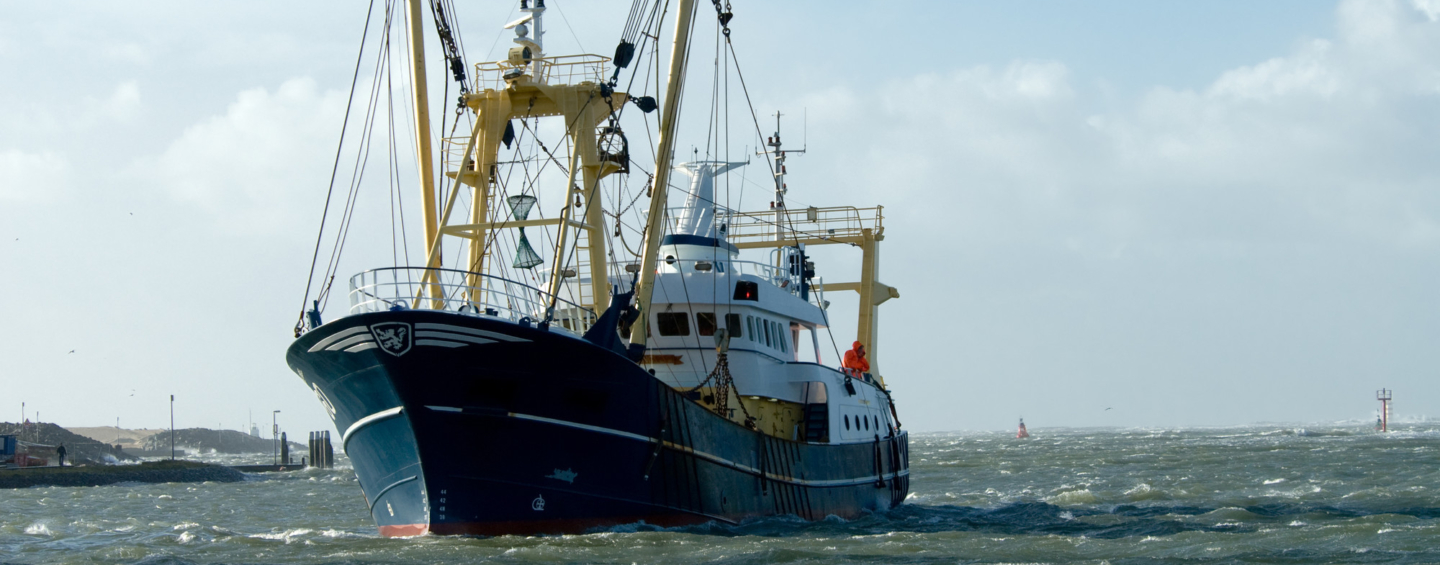Southern Europe and Japan are two of the biggest seafood markets in the world. In October, both played host to major seafood forums that focused on the similar challenges that each region faces in the transition to a sustainable seafood economy.
In Europe, new legislation requiring greater environmental accountability in the seafood sector is creating ripple effects in Asia’s seafood market. SFP’s work with our partners and other industry stakeholders can help businesses navigate these new requirements while maintaining competitiveness and contributing to the protection of global marine ecosystems. In both Spain and Japan, we had the opportunity to connect with industry and present our approach to seafood sustainability.
Connecting with partners and collaborators at Conxemar
Early in October, we participated in the 25th annual Conxemar International Frozen Seafood Exhibition in Vigo, Spain.
On the day before the Exhibition officially began, we attended the 12th International Congress “Responsibility for the Future,” which was organized by FAO and Conxemar.
The day included panels and experts on fisheries, policy, and nutrition, focused on the main findings of the 2024 edition of the UN Food and Agriculture Organization’s “The State of World Fisheries and Aquaculture” (SOFIA) report. Jean-Louis Meuric, vice chair of the SFP Board of Directors, spoke at the Congress on the challenges and opportunities in sustainable fisheries resource management.
Over the next few days, at the Exhibition, we had a chance to connect with partners, collaborators, and other industry representatives, including many participants from the Global Squid and Global Octopus Supply Chain Roundtables (SRs).
Many of the companies involved in the Global Squid SR expressed concern about disruptions in squid supplies, due to the closure of the Patagonian squid fishery in the Falkland Islands and short supplies of jumbo flying squid in Peru. Carmen also spoke with current stakeholders of the Illex FIP (Argentina shortfin squid – jig (CAPA)) on how to advance toward better traceability. Related to octopus, during a meeting with stakeholders from Mauritania, progress was made on the future octopus FIP (Mauritania octopus – bottom trawl, pot/trap and jig), which was then officially listed on FisheryProgress.org later in the month.
A frequent topic of discussion among industry stakeholders was how to include due diligence in their operations, in light of the coming European Union directive requirements. SFP recently released a policy brief explaining the new EU Due Diligence Directive and its implications for the seafood industry.
During the Exhibition, we were able to connect with the Federation of European Aquaculture Producers (FEAP), a key organization representing aquaculture producers across Europe. This engagement opens new doors for collaboration in advancing sustainability within aquaculture partners in the EU. As part of this ongoing dialogue, we have shared with them our innovative aquaculture Feed Solutions Toolkit, which represents a significant step in addressing the risks linked to ingredients used in compound feed production.
We are excited about the possibilities this connection holds and look forward to strengthening relationships with FEAP and its members as we continue to drive innovation and sustainability in aquaculture, enhancing the transparency of marine ingredients by providing clear, accessible data on their sourcing, sustainability, and traceability.
Emphasis on partnership and collaboration in Tokyo
Later in October, we participated in the Tokyo Sustainable Seafood Summit (TSSS), which celebrated its 10th anniversary this year. Over the past decade, TSSS has become a cornerstone event for advancing sustainability in the seafood industry, bringing together leaders, innovators, and advocates from across the globe.
SFP was honored to contribute to multiple discussions in Tokyo this year:
Mercedes participated in the panel “Minimize the Impact of Overfishing and Environmental Destruction in the Seafood Market in Japan and Asia.” She highlighted the tools that SFP had developed to support companies in their environmental due diligence efforts and to help them collaborate across supply chains to mitigate risks to ecosystems while ensuring long-term business and community resilience.
SFP’s Chief Executive Officer Jim Cannon spoke at two sessions, including the final wrap-up of the conference, “The Path: Movements in Japan and Asia – Reflecting on Progress and Setting the Roadmap to 2030.” He emphasized the importance of aligning industry efforts to mainstream sustainable seafood by 2030 and discussed consumer awareness, policy enhancements, and most importantly, stronger long-term partnerships.
Looking to the future of sustainable seafood
The 10th anniversary of TSSS was both a celebration and a call to action. As the seafood industry in Asia continues to evolve, the summit underscored the urgency of collective action to meet the ambitious 2030 goal of making sustainable seafood the norm. Similarly, our experiences at Conxemar highlighted the importance of collaboration and partnership in achieving these goals.
While these events were on opposite sides of the globe, we heard many of the same themes and many of the same concerns from participants at each. No matter where they are in the world, companies are focused on traceability, due diligence, collaboration, partnership, and resilience.
SFP remains committed to fostering transparency, advocating for sustainable practices, and educating the seafood industry about its critical role in protecting our oceans. In the coming months, we will continue to build on the momentum from Conxemar and TSSS to create a future where seafood sustainability is the standard, not the exception.
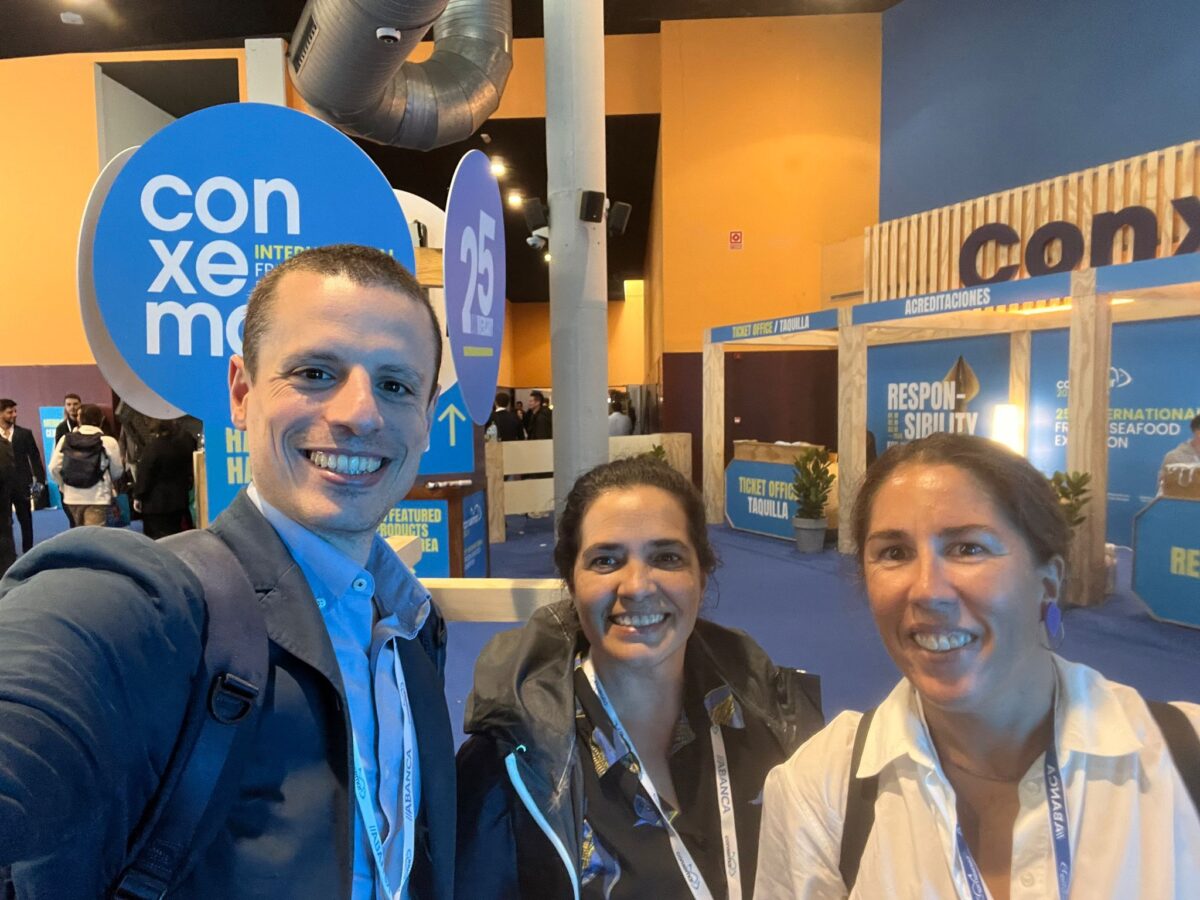
Mendoza (center) and González-Vallés (right) with David Parreno Duque, SFP’s EU Partnership Engagement Specialist (left), at Conxemar.
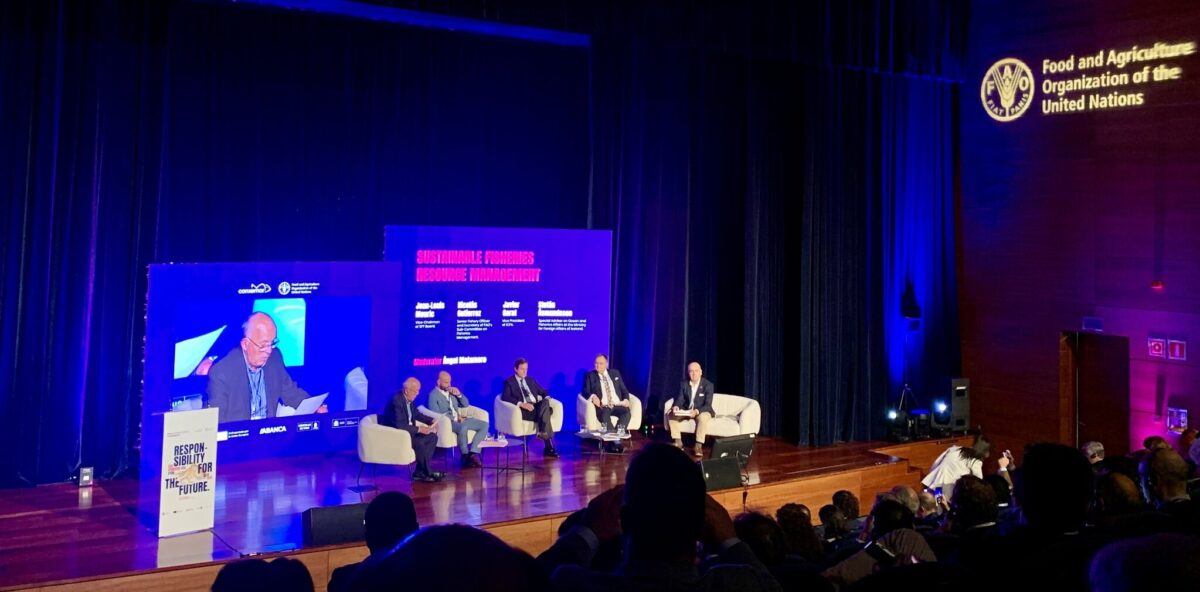
SFP Board of Directors Vice Chair Jean-Louis Meuric speaking on challenges and opportunities in sustainable fisheries resource management at the Conxemar/FAO International Congress at Conxemar.

Read an interview with SFP CEO Jim Cannon in the Seafood Legacy Times, a product of the Tokyo Sustainable Seafood Summit
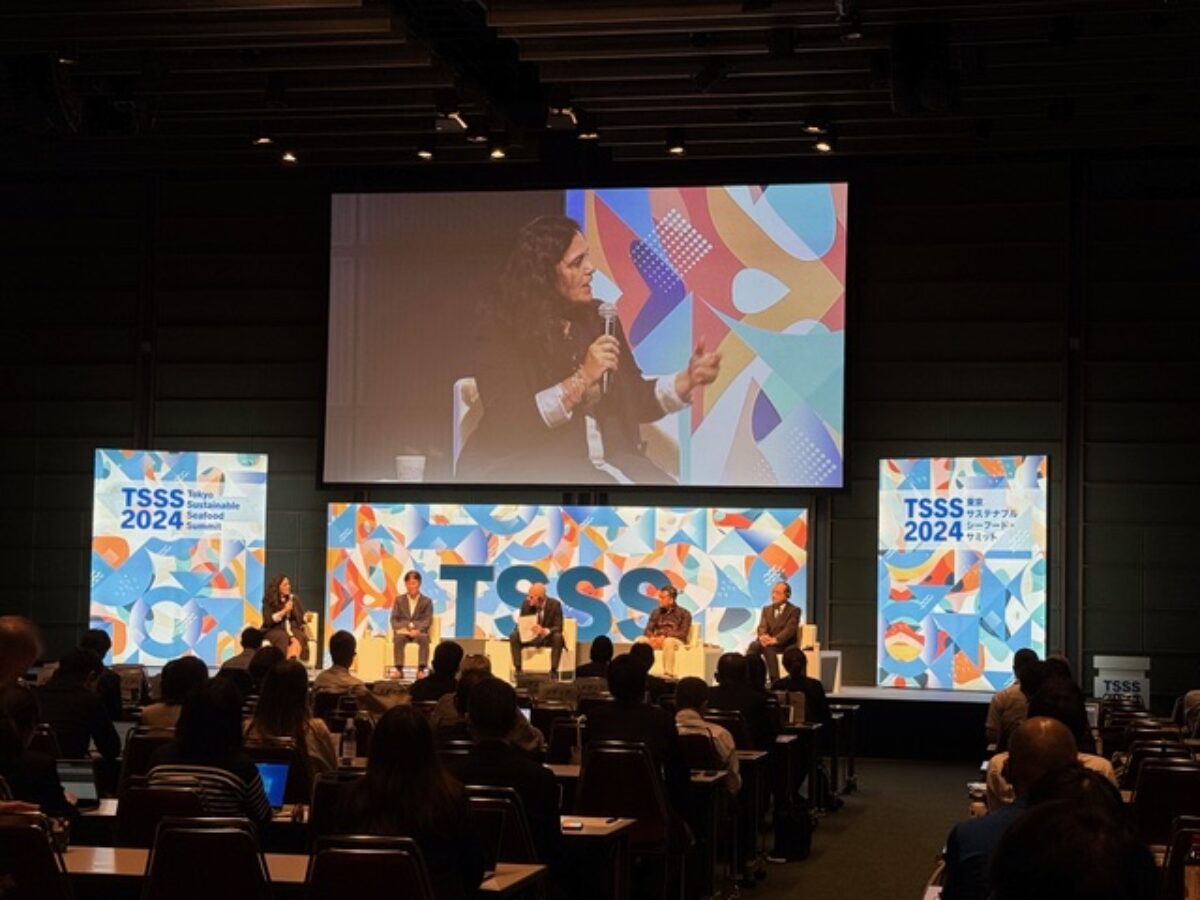
Mendoza speaking at a panel session at the 2024 Tokyo Sustainable Seafood Summit.
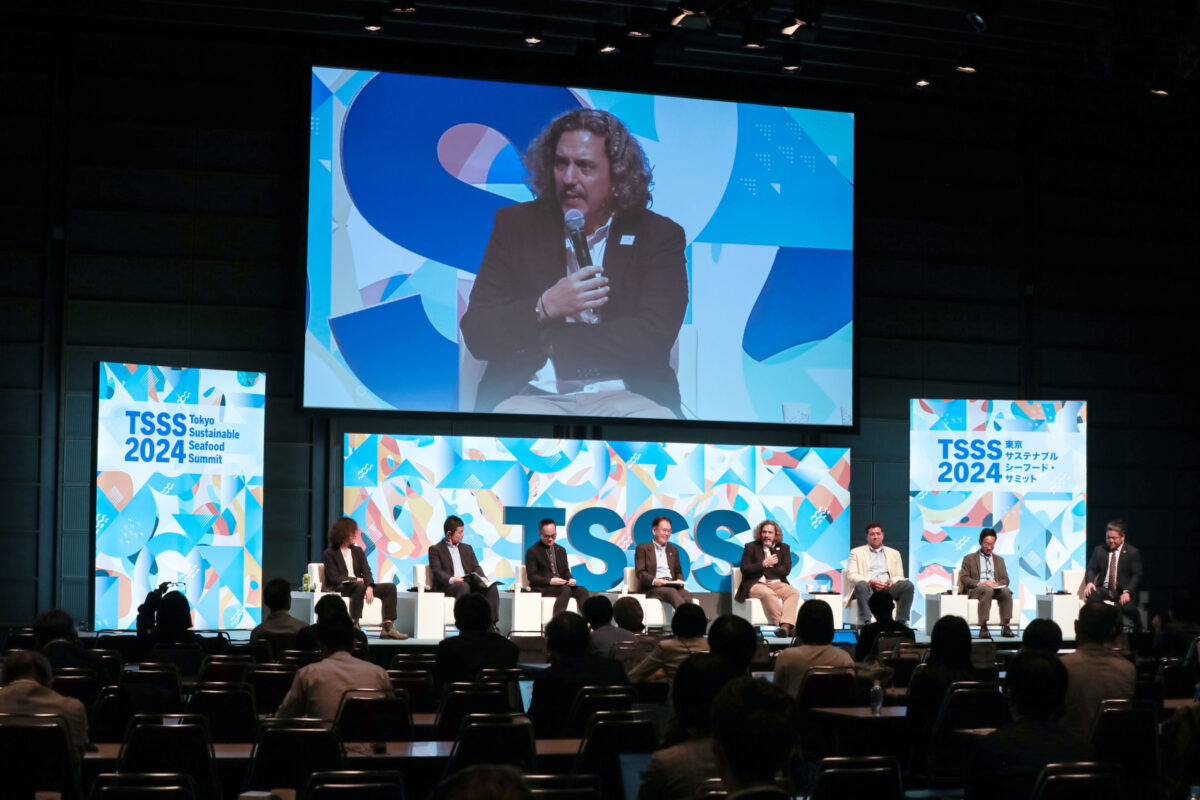
SFP CEO Jim Cannon speaking at the closing session of the 2024 Tokyo Sustainable Seafood Summit.

